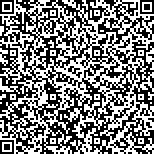附件
|
| 引用本文: | 孔令惠,蔡庆华,徐耀阳,王岚,张敏.丹江口水库浮游轮虫群落季节变动特征及其与环境因子的关系.湖泊科学,2010,22(6):941-949. DOI:10.18307/2010.0619 |
| KONG Linghui,CAI Qinghua,XU Yaoyang,WANG Lan,ZHANG Min.Seasonal change features of rotifer community and its correlation with environmental factors in Danjiangkou Reservoir. J. Lake Sci.2010,22(6):941-949. DOI:10.18307/2010.0619 |
|
| |
|
|
| 本文已被:浏览 7835次 下载 4883次 |

码上扫一扫! |
|
|
| 丹江口水库浮游轮虫群落季节变动特征及其与环境因子的关系 |
|
孔令惠1,2, 蔡庆华1, 徐耀阳1,2, 王岚1,2, 张敏1,2
|
|
1.中国科学院水生生物研究所淡水生态与生物技术国家重点实验室, 武汉 430072;2.中国科学院研究生院, 北京 100049
|
|
| 摘要: |
| 为了解丹江口水库轮虫群落的季节变化及其与环境因子的关系,于2007年7月至2008年5月对丹江口水库轮虫群落及理化因子进行了周年调查.共检测到轮虫62种,隶属于12科23属,其中丹江库区30种,汉江库区54种.广布多肢轮虫(Polyarthra vulgaris)、螺形龟甲轮虫(Keratella cochlearis)、长圆疣毛轮虫(Synchaeta oblonga)、等刺异尾轮虫(Trichocerca similes)、冠饰异尾轮虫(Trichocerca lophoessa)、裂痕龟纹轮虫(Anuraeopsis fissa)为主要优势种类.丹江口水库轮虫年平均密度和生物量季节变化特征为:冬季< 春季< 夏季< 秋季;区域变化特征为:丹江库区< 取水口< 汉江库区< 五青入库区.相关分析表明,水体透明度、叶绿素a、总磷、溶解性氮和溶解氧浓度与轮虫密度和生物量呈显著的相关关系.夏季对优势轮虫密度变化有显著贡献的环境因子为SiO2-Si和溶解氧含量,秋季为溶解氧和pH,冬季为叶绿素a、溶解氧和DIN,春季为DIN. |
| 关键词: 浮游轮虫 群落结构 季节变化 丹江口水库 |
| DOI:10.18307/2010.0619 |
| 分类号: |
| 基金项目:国家"十一五"科技支撑课题项目(2006BAC10B02)资助 |
|
| Seasonal change features of rotifer community and its correlation with environmental factors in Danjiangkou Reservoir |
|
KONG Linghui1,2, CAI Qinghua1, XU Yaoyang1,2, WANG Lan1,2, ZHANG Min1,2
|
|
1.State Key Laboratory of Freshwater Ecology and Biotechnology, Institute of Hydroblology, Chinese Academy of Sciences, Wuhan 430072, P. R. China;2.Graduate University of Chinese Academy of Sciences, Beijing 100049, P. R. China
|
| Abstract: |
| Community structure of rotifers and water physical-chemical factors of Danjiangkou Reservoir were seasonally investigated during July 2007 to May 2008. Seasonal dynamics of rotifer community and the water trophic and health state from the reservoir were analyzed and assessed. There 62 species were found, 30 species in Danjiang area, 54 species in Hanjiang area, and 22 species were in both places. Polyarthra vulgaris, Keratella cochlearis, Synchaeta oblonga, Trichocerca similes, Trichocerca lophoessa and Anuraeopsis fissa were the most common dominant species. Average density and biomass of rotifers reached the maximum in winter and followed by spring, summer and autumn. The changes of convergent areas are greater in Wuqing area, followed by Hanjiang, Qushuikou and Danjiang reservoir areas. Water transparency, chlorophyll-a, dissolved oxygen, TP, pH and DIN have been correlated with rotifer density and biomass, of which SiO2-Si and dissolved oxygen were significantly contributed to dominant rotifer densities in summer. Dissolved oxygen and pH in autumn, chlorophyll-a, dissolved oxygen and DIN in winter, DIN in spring were significantly contributed to dominant rotifer densities. |
| Key words: Rotifer community structure seasonal variations Danjiangkou Reservoir |
|
|
|
|